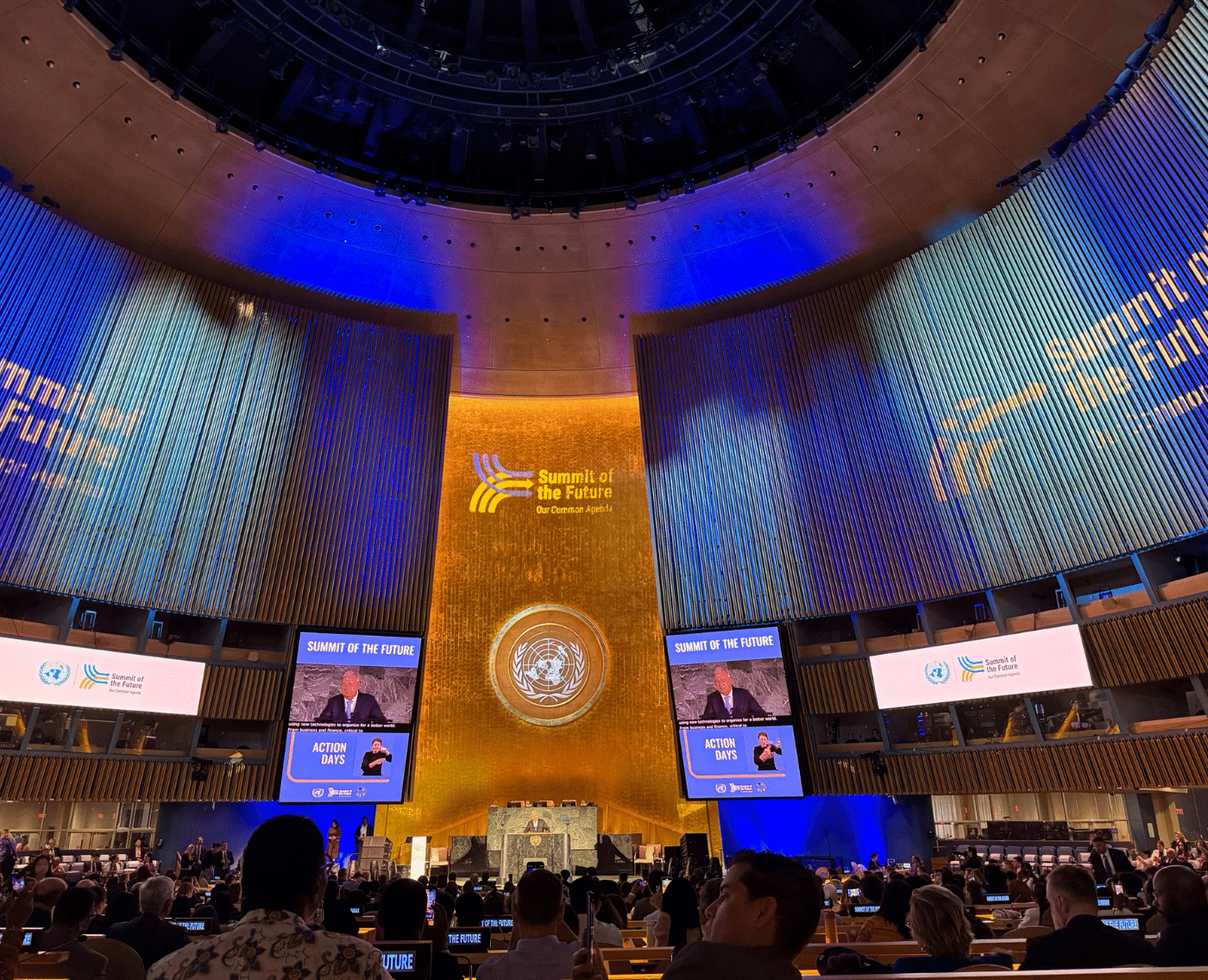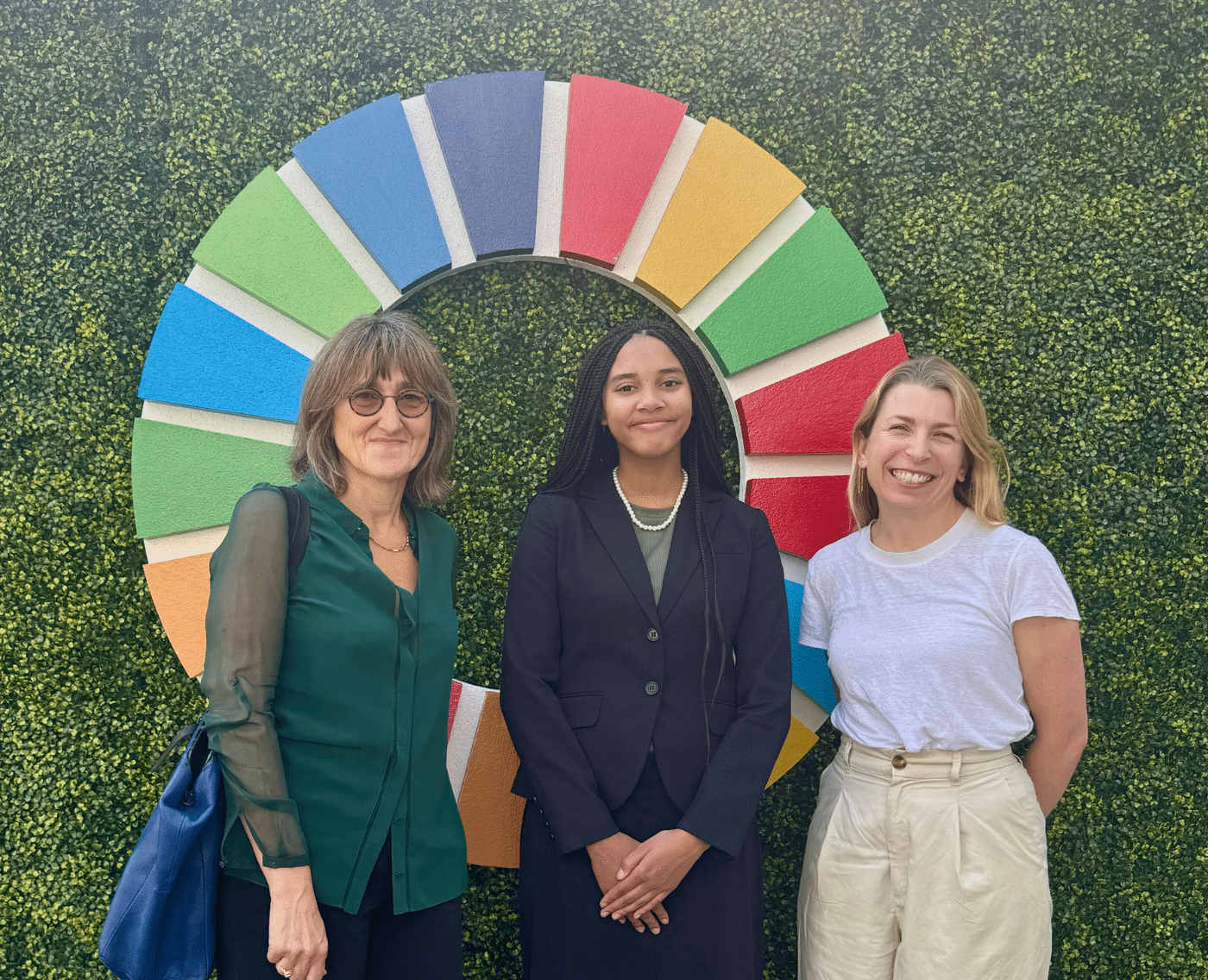Leaders agree on Global Digital Compact: a step closer to a safer digital future for children
Global leaders gathered in New York at the Summit of the Future and adopted the Global Digital Compact (GDC), with children’s rights at its core.

Over the past 18 months, the 5Rights Foundation, leading a global coalition of 14 children’s rights organisations, has been deeply engaged in the development of the GDC, the first international agreement aimed at securing a better digital future for all, grounded in human rights.
In the final text, states reaffirmed their determination to protect children’s rights in the digital world. Notably, they commit to “strengthen legal and policy frameworks to protect the rights of the child in the digital space” and to “prioritise the development and implementation of national online child safety policies and standards” by 2030. This promise is a significant step forward in creating the digital world children deserve.
5Rights’ contribution was recognised with an intervention by our Chair Baroness Kidron at the UN to present the Compact, who called on governments and tech companies to now focus on delivering for children: “As of yet, only a handful of countries have passed legislation that prioritises the rights and needs of children – leaving child’s safety, security, and privacy dependant on where they live. This is unacceptable. Every child, no matter where they are, deserves a digital environment that is safe, rights-respecting, and empowering. 5Rights and children all over the world will make sure to hold governments to the promises made in the Global Digital Compact,” Baroness Kidron said in a video address to leaders and guests.
5Rights Youth Ambassadors welcome GDC
The adoption of the Compact was welcomed by 5Rights Youth Ambassadors around the world, with some 100 young people working together to issue coordinated press releases across 28 countries. These young leaders are hopeful that the promises leaders made at the Summit will turn into real changes by 2030, creating a safer digital future for all children, no matter where they live.
In New York they were represented by 13 year old Skye from the United States, who attended the Summit Action Days and said:
“Older generations have seen that these systems often don’t work for children and young people. Now, they want to give us something better—the gift of a safer and fairer digital future. By adopting the Global Digital Compact, countries like the United States are making a promise to children everywhere. This promise is about ensuring we can grow up in a digital world made for us.”

In the picture: 5Rights Founder and Chair, Baroness Beeban Kidron (left) and 5Rights Executive Director, Leanda Barrington-Leach, pose with 5Rights Youth Ambassador, Skye from the US.
More information:
- Joint submission to the Global Digital Compact, April 2023, by 5Rights on behalf of: Child Rights Connect, Alana Institute, ChildFund Alliance, Child Rights International Network (CRIN), ECPAT, Foundation for the Student Rights (Poland), Make Mothers Matter, Plan International, Plataforma de Infancia, Save the Children, SOS Children’s Villages, Terre des Hommes International Federation, World Vision International and 5Rights Foundation.
- Joint Statement on the Global Digital Compact, March 2024
